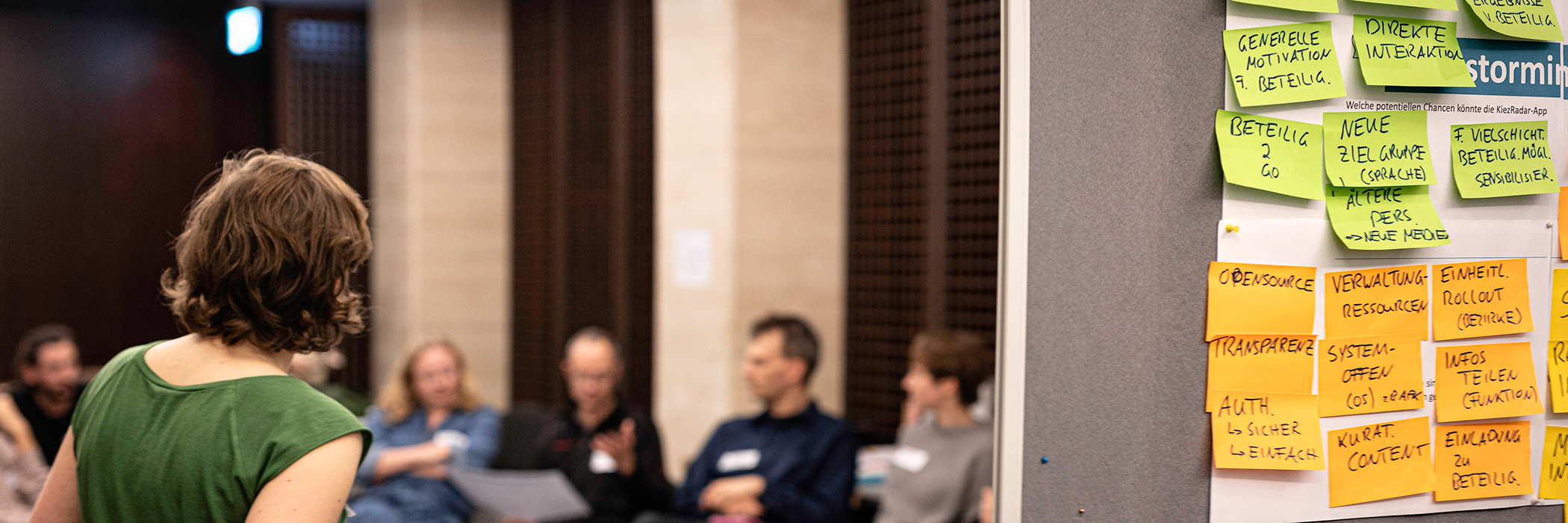Digitalisation – citizen-friendly, user-centric and barrier-free
The Open User Lab supports public administration and the judiciary in digitalisation projects with methodological competence and scientific expertise in the areas of human-centred design, user experience and digital accessibility. Based on the requirements of public administration, our team of experts supports the introduction and (further) development of specialised applications and citizen services. To this end, we design analogue and digital spaces in which various stakeholders are brought together. Customised concepts and concrete implementations are created in the lab or at the client's location.
The Open User Lab reviews existing digital applications together with all stakeholders: By means of evaluations according to standards, norms and laws as well as user tests, the strengths and weaknesses of a solution can be quickly uncovered and expensive undesirable developments avoided. At the same time, the Open User Lab supports the development of new design ideas: Using wireframes, click dummies or prototypes, ideas can be tested at an early stage without major development effort allowing design alternatives to be compared.
Another focus is on organisational development and knowledge transfer on topics such as data-driven government, open government and digital leadership. Together with (administrative) employees, the Open User Lab develops mission statements and its own e-learning formats that are specifically tailored to their individual needs.
In line with the motto “Connecting what belongs together”, the Open User Lab thus links research and practice, users and IT planning, citizens and administrative staff.
Our services:
- Evaluating digital applications: Evaluations in accordance with common norms, standards and laws such as DIN EN ISO 9241, accessibility tests (BITV 2.0)
- User interviews, usability tests, eye-tracking analyses
- Developing and testing design ideas: User feedback, design thinking and requirements workshops
- Provide own platform for improved user interaction: Digital laboratory environment, rooms for tests, workshops and demonstrations
- Promote organisational development, for example in the areas of data-driven government, open government and digital leadership
- Develop e-learning formats together based on the needs of employees
- Open User Lab Website (openuserlab.fokus.fraunhofer.de)
- Usabilizer: Data visualisation of usability tests (usabilizer.fokus.fraunhofer.de)
- Politess Mobile: Usability tests for the Berlin LABO
